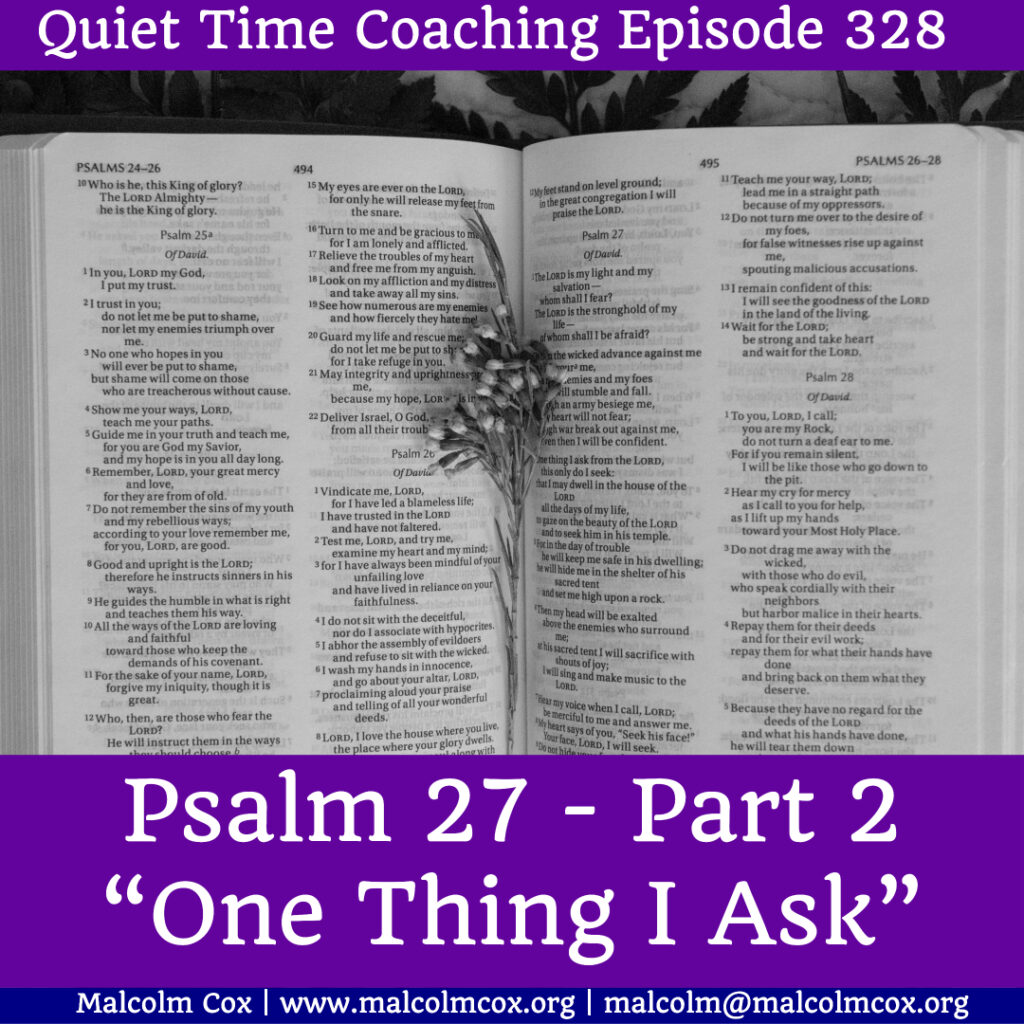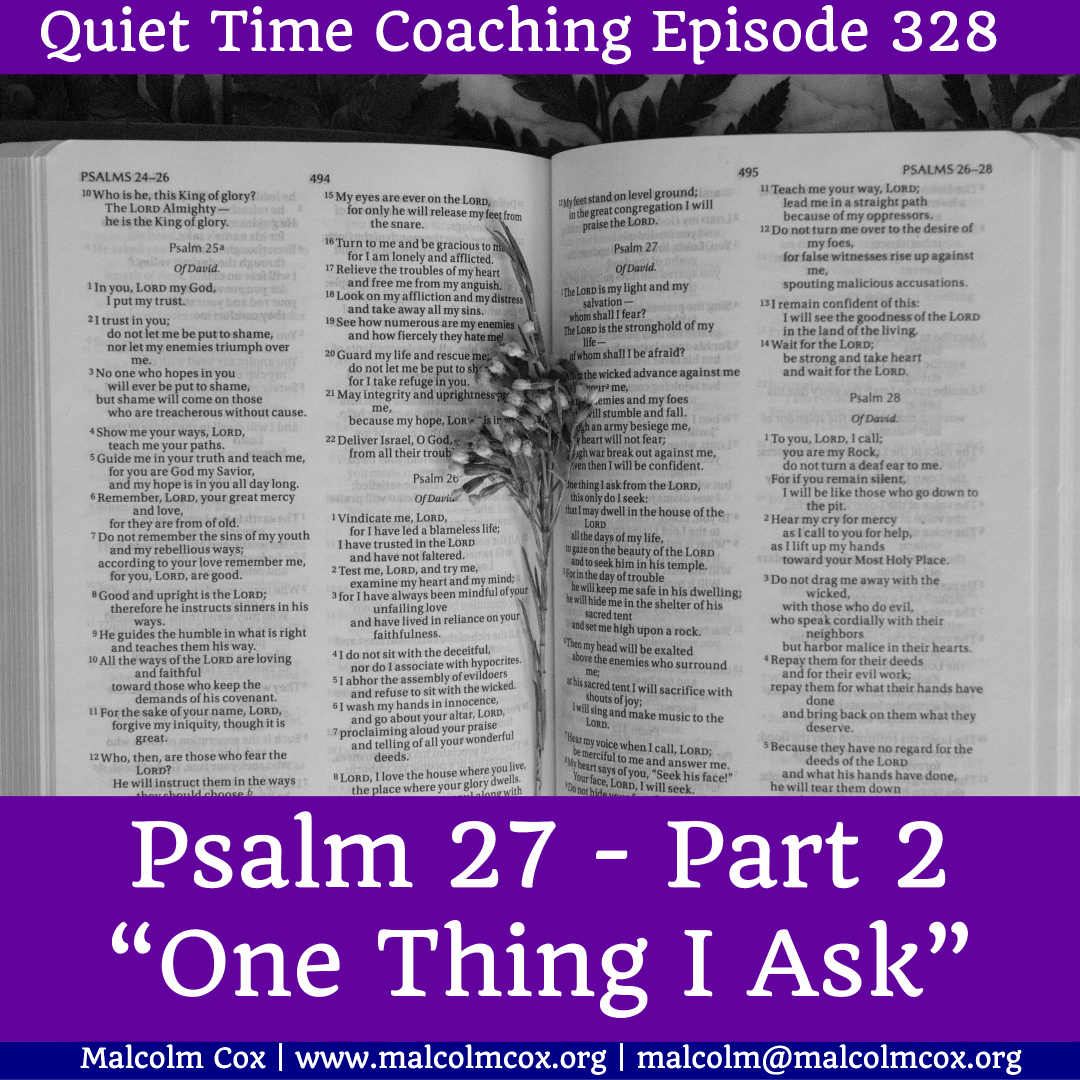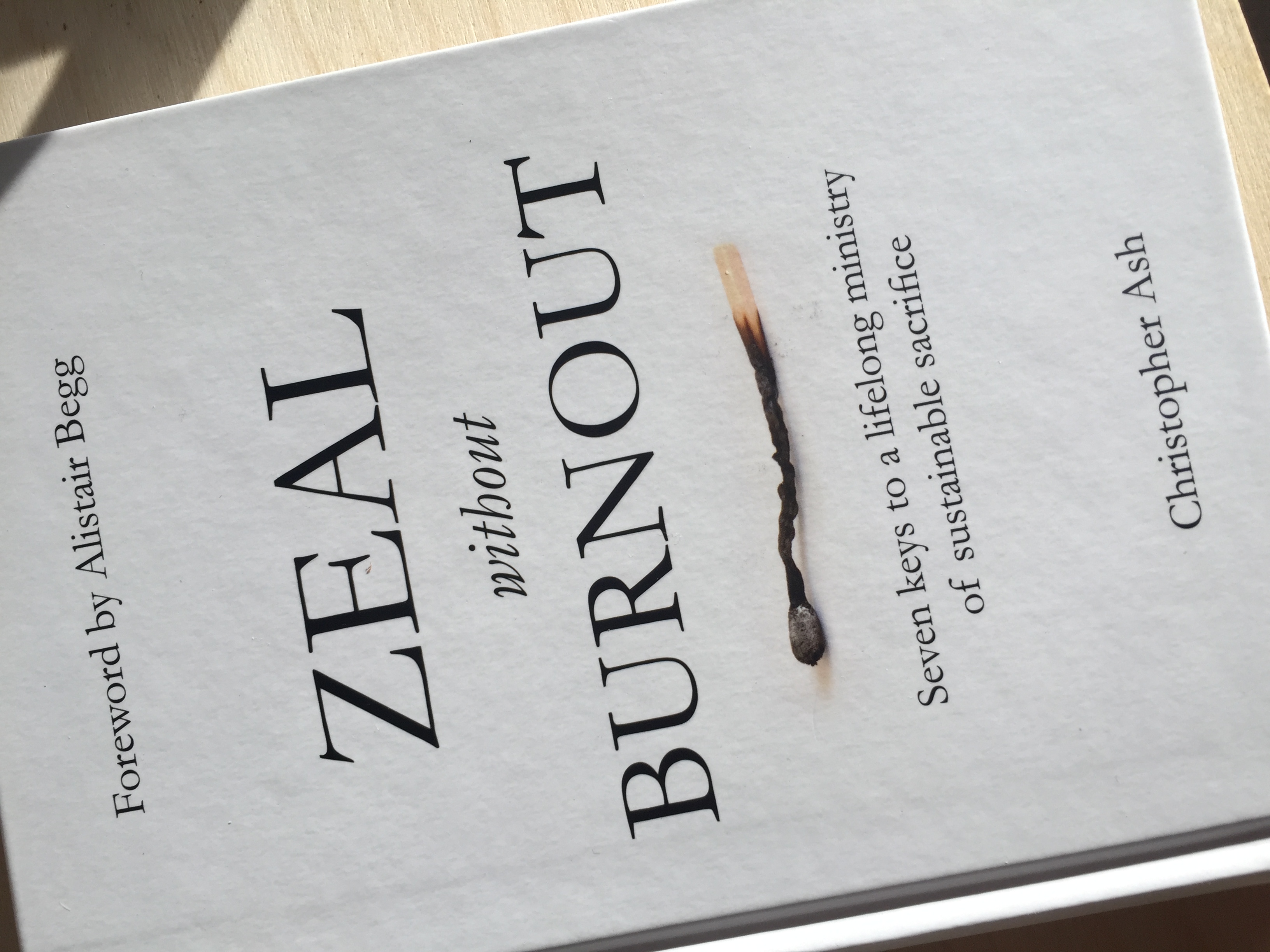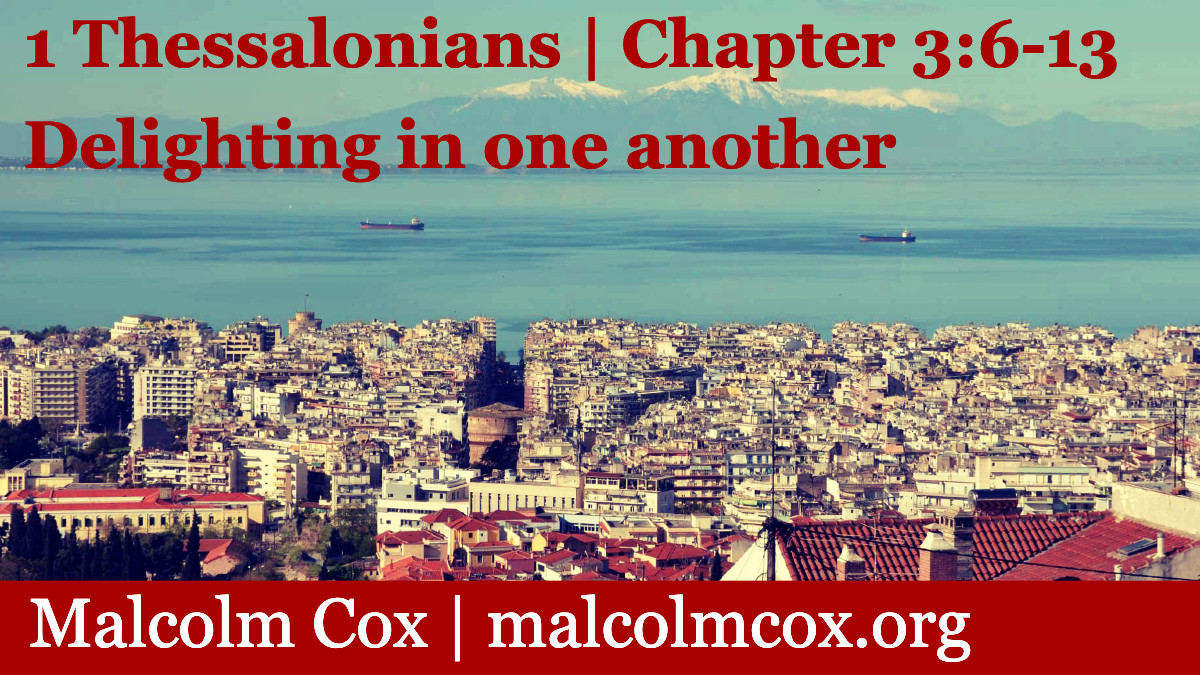
Today we continue with a series based on Psalm 27. I spoke on this Psalm’s theme, and especially verse 4, for the Watford church of Christ. We are part-way through a series based on the “one thing” phrases found in the Scriptures.
If you haven’t already done so, I recommend listening to the first episode which covers some background thoughts on the context of the Psalm.
“The LORD is my light and my salvation— whom shall I fear? The LORD is the stronghold of my life— of whom shall I be afraid?” (Psalm 27:1)
The LORD
What is the first thing we notice? The first two words of each sentence. “The LORD”. David may be surrounded by enemies, but YHWH is first and foremost in his thoughts. One of the reasons David was a man after God’s own heart was that he trusted God to be present, nearby and attentive. How spiritual well-being is directly tied to how much confidence we have that God is present and powerful. Jesus said, “Do not let your hearts be troubled. You believe in God; believe also in me.” (John 14:1 NIV11) His followers were worried about his physical departure. They didn’t realise was that he would be just as present, and more so because the Holy Spirit would be with us and in us, “I will ask the Father, and he will give you another advocate to help you and be with you forever— the Spirit of truth. The world cannot accept him, because it neither sees him nor knows him. But you know him, for he lives with you and will be in you.” (John 14:16–17). Jesus promises us he will always be with us, “My Father will love them, and we will come to them and make our home with them.” (John 14:23 NIV11)
What is the lesson from this truth? We do well to begin our prayers with a reflection on the presence of our Father God, Jesus and the Spirit before we offer our requests and petitions. That’s why the Lord’s prayer begins with, “Our Father in heaven…”.
The LORD’s Qualities
David lists three of God’s qualities at the beginning of this Psalm. God is his light, his salvation and his stronghold. These qualities give us a clue as to what David is fearing. He is fearing darkness, lostness and insecurity. Don’t we all struggle with these feelings from time to time?
Perhaps David is thinking of the lamps in the tabernacle. They were maintained so they did not go out symbolising God’s permanent presence. you might remember Samuel’s experience of hearing God in the temple, “The lamp of God had not yet gone out, and Samuel was lying down in the house of the LORD, where the ark of God was.” (1 Samuel 3:3)
We rightly fear darkness and lostness, ““The eye is the lamp of the body. If your eyes are healthy, your whole body will be full of light. But if your eyes are unhealthy, your whole body will be full of darkness. If then the light within you is darkness, how great is that darkness!” (Matthew 6:22–23). Messiah was expected to be a light, “I will also make you a light for the Gentiles, that my salvation may reach to the ends of the earth.”” (Isaiah 49:6 NIV11). Jesus is the light: “When Jesus spoke again to the people, he said, “I am the light of the world. Whoever follows me will never walk in darkness, but will have the light of life.”” (John 8:12 NIV11)
A ‘stronghold’ is a place of safety, a refuge where no harm can befall, “The LORD is a refuge for the oppressed, a stronghold in times of trouble.” (Psalm 9:9 NIV11) In Hebrew it can mean a walled and fortified place; a safe inaccessible place especially an elevated situation above ones enemies. As brothers and sister to Christ we are safer than any physical space, “We know that anyone born of God does not continue to sin; the One who was born of God keeps them safe, and the evil one cannot harm them.” (1 John 5:18)
What is the lesson from these truths? Our prayers carry more substance when they reflect the qualities of God. God as provider of light, salvation and safety meant everything to David as he experienced the challenges in his life at that point. What challenges are you facing? Which of God’s many qualities are most relevant to you at the moment? Could you make those a focus of your prayers? I suspect you will find such a practice helpful in strengthening your faith and courage.
David’s Response
Reflecting on the Lord’s nearness and his qualities leads David to speak a simple truth – there is no one he needs to fear. As the writer to the Hebrews puts it, ““The Lord is my helper; I will not be afraid. What can mere mortals do to me?””(Hebrews 13:6 NIV11)
Jesus is not angry when we fear people, but he hurts for us because he knows there is a better, healthier, more peace-filled and joyful way for us to live. We can live without crippling fear – the fear which shackles our spiritual ambition.
What is the lesson from this truth? To bring our fears into God’s light and allowing him to burn them away as we rejoice in his presence, his power, his provision and his love.
We will conclude today’s podcast with the song I wrote using the words of Psalm 27 verse 4.
Next week we will proceed to the second verse of the Psalm. In the meantime, please add your comments on this week’s topic. We learn best when we learn in community.
Do you have a question about teaching the Bible? Is it theological, technical, practical? Send me your questions or suggestions. Here’s the email: [malcolm@malcolmcox.org](mailto:malcolm@malcolmcox.org).
If you’d like a copy of my free eBook on spiritual disciplines, “How God grows His people”, sign up at my website: http://[www.malcolmcox.org](http://www.malcolmcox.org/).
Please pass the link on, subscribe, leave a review.
“Worship the LORD with gladness; come before him with joyful songs.” (Psalms 100:2 NIV11)
God bless, Malcolm


